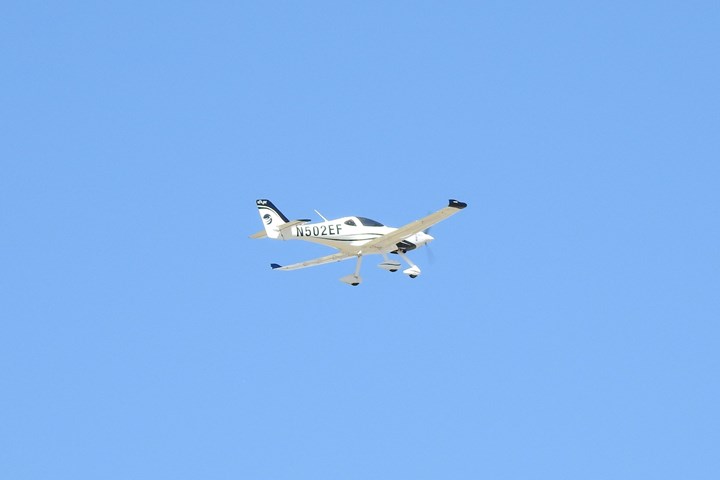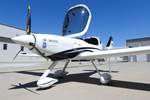Bye Aerospace closes $10 million in funding
The investments have enabled the company to work on Serial #001, the first production-conforming prototype of its two-seat eFlyer 2 aircraft.

Source | Bye Aerospace
Bye Aerospace (Denver, Colo., U.S.), developer of the FAA FAR 23-certified all-electric eFlyer aircraft, announced on July 13 the completion of a $5 million strategic investment by a venture capital group earlier this year. The successful investment was soon followed by the completion of a $5 million venture raise, reaching $10 million in total funding. George E. Bye, CEO of Bye Aerospace, says the investments have allowed the company to begin work on Serial #001, the first production-conforming prototype of its two-seat eFlyer 2 aircraft.
“Electric flight is the future of air travel, and even more so now following the coronavirus outbreak, especially as the demand for affordable, smaller, greener aircraft increases. We are seeing more investors recognize the vision of Bye Aerospace as a leader in this sector,” notes Chrysanthe Gussis, a Bay Area green tech investor, finance expert and a member of Bye Aerospace’s strategic advisory board.
Bye notes that although the two financial transactions successfully closed during coronavirus restrictions, much of the due diligence and planning was completed before the COVID-19 pandemic escalated. “Since raising the $10 million, we have completed critical design review in early June and are now underway with multiple test flights of the eFlyer 2 technology demonstrator,” he says. “Next, we will be solidifying our supply chain relationships to begin assembly on Serial #001.”
Previously, in late 2018, Bye Aerospace completed a major investment by SUBARU-SBI Innovation Fund, a joint venture between Subaru and SBI Investment Co. (Tokyo, Japan).
Related Content
-
Composites end markets: Automotive (2024)
Recent trends in automotive composites include new materials and developments for battery electric vehicles, hydrogen fuel cell technologies, and recycled and bio-based materials.
-
Exel Composites supplies fiberglass profiles for Foton electric buses
Partnership with Chinese automotive manufacturer will see the implementation of pultruded profiles in various bus models, backed by weight savings, complex geometries and long life.
-
Bcomp ampliTex makes appearance in Cupra EV Cup Bucket seats
The entire Cupra Born VZ line-up features all-natural fiber front seats that highlight functionality, aesthetics and reduced CO2 emissions.












